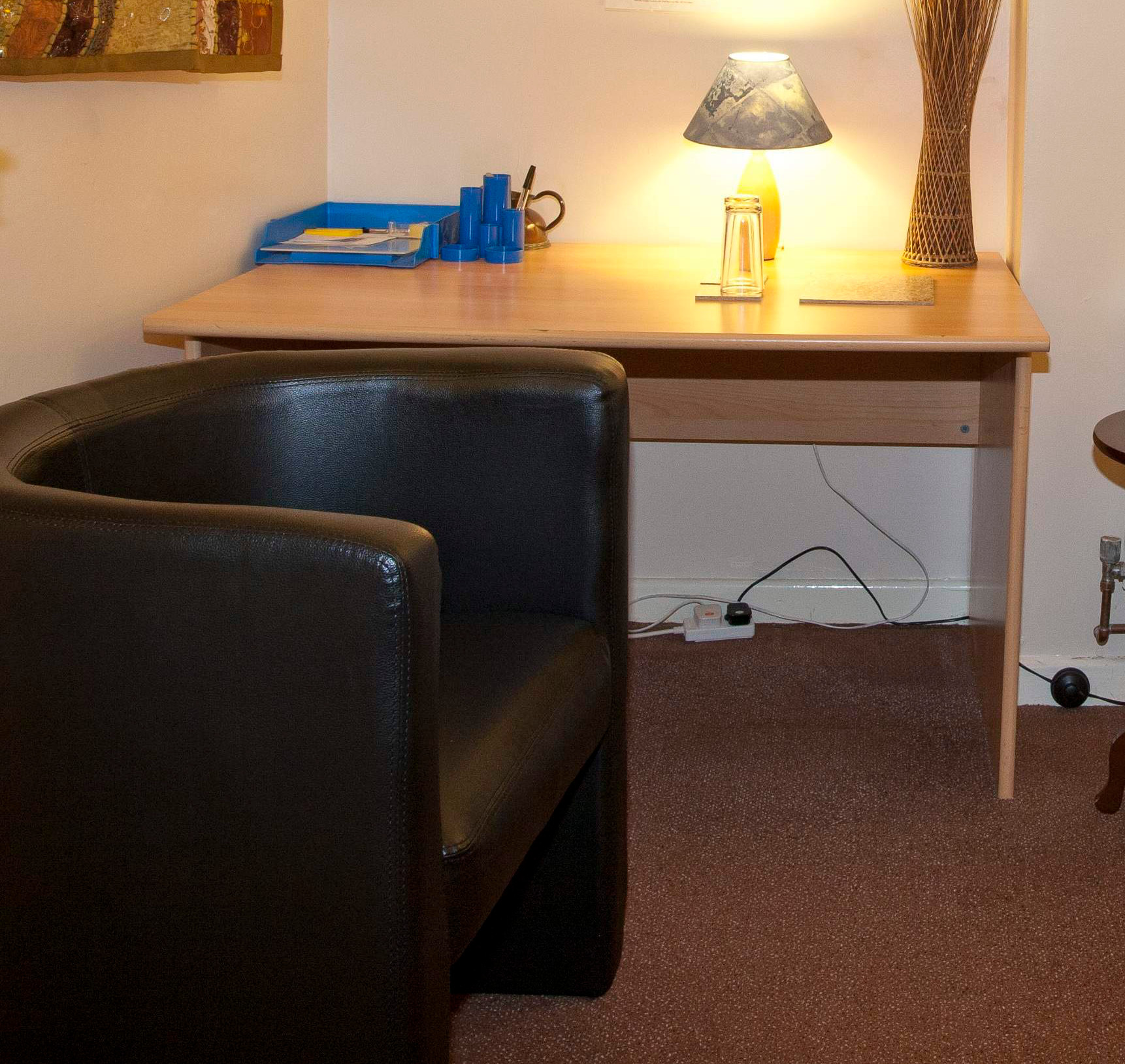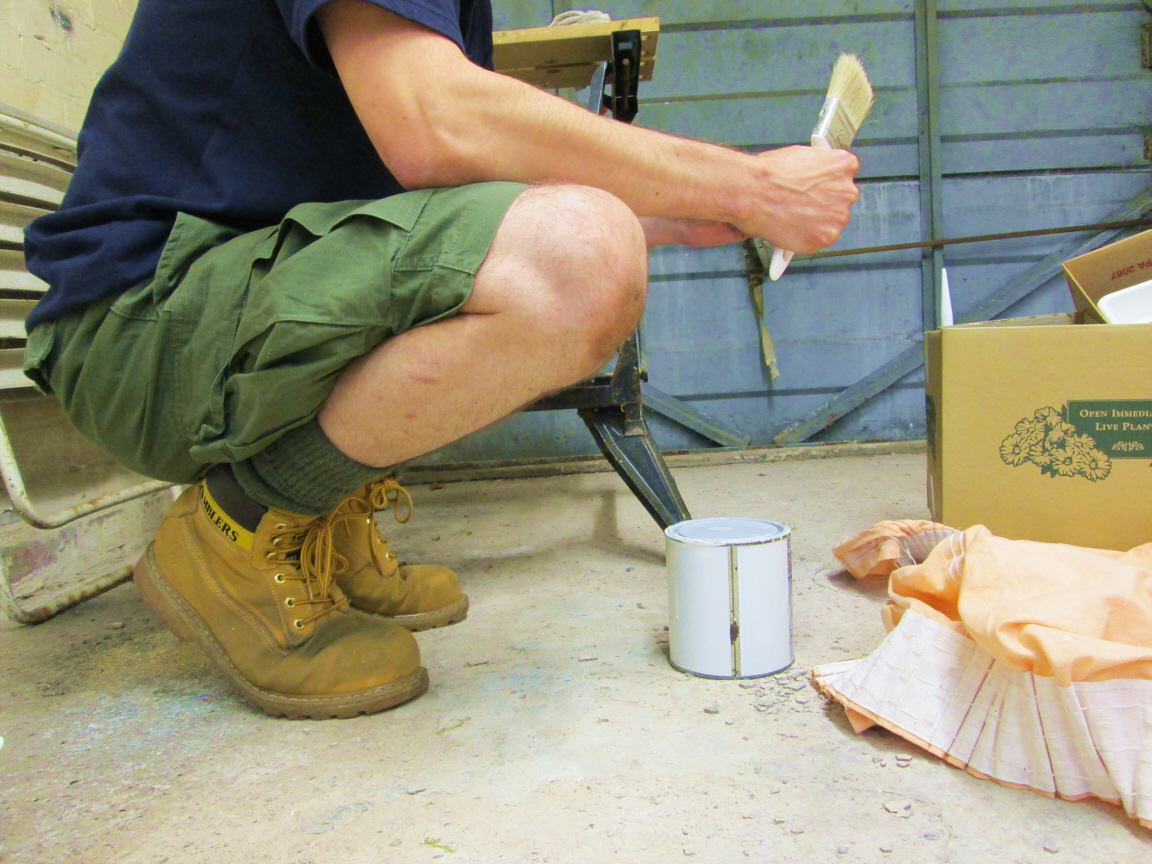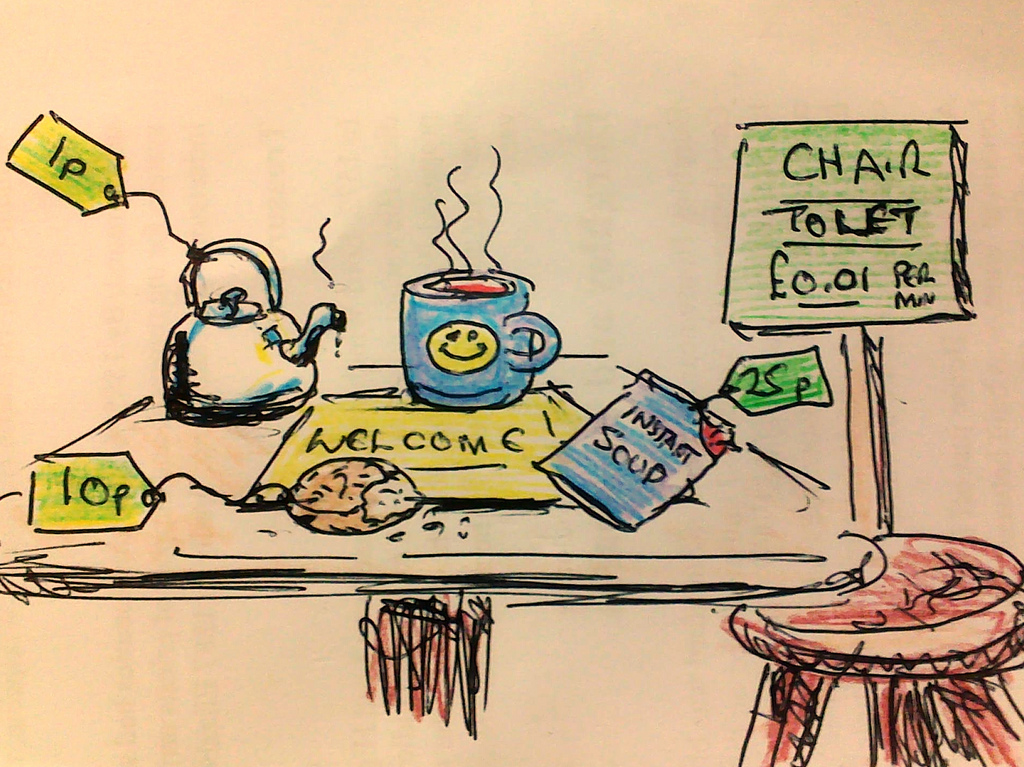https://youtu.be/xuzRnEmY3rI
Transitioning (F2M) “Q&A part II”

Articles on the profession of counselling & psychotherapy.

https://youtu.be/xuzRnEmY3rI

Different therapists will each have a different rationale for their counselling session fees, and what they do when a client does not appear for an arranged session,
With respect to a client not appearing for a session with me (giving no warning): I charge the full fee for that session (and charge a half-fee for sessions cancelled with notice). This arrangement is put in writing at the beginning of the clinical work so that the client is informed.
Now, you may think that the absent client aught not to pay for a session that they do not/could not attend. After all, the client was not actually there for that session.
But… I was still there for the session… the whole of it… and I stayed there with the absent client
Read on for a more full rationale that informs my approach for missed/DNA sessions…
In a client’s absence, I will still be working during the session:-
Sometimes a cigar is just a cigar.
…apparently Sigmund Freud said this… but other sources say he didn’t 😉
What this phrase means that sometimes therapists who work with the unconscious may interpret evidence… when actually the interpretation is a bit of a miss and a literal understanding may be more appropriate.
Freud’s attributed quotation, above, is referring to how the cigar may be interpreted to represent (say) a penis. Sometimes this interpretation may be accurate (the man who always takes out a very large cigar from the box may be compensating for the small penis… or whatever the “penis” represents for him: lack power, potency, etc.) and sometimes the interpretation may not be accurate (the man simply likes large cigars).
So, baring this in mind…
As human beings, we often effect other human beings.
Something we might say something like “he made me so angry” – and what we mean by putting it this way is that one person effected anger in the other.
It works a little bit like a dance (an actual one… two… three… physical dance): if you pull me towards you then I’ll feel that pull; your action resulted in my reaction.
It’s similar with emotions.
If I sit there and contemplate my emotions around the client’s absence (my “reaction”), this might help me understand what might be the client’s part in the dance (the client’s “action”).
Do I feel angry at this absence? Abandoned?
Am I feeling relieved? Was this following a difficult session?
Am I puzzled? Was I expecting this?
This pondering about my emotions can help me begin to appreciate maybe what the client’s “pull” on me may be asking of me… begging me… to understand. Something that, maybe, the client’s conscious mind cannot tell me.
Sometimes a DNA (“Did Not Attend”) might be about communicating something that could not be said in words.
Thinking this over can assist me in understanding a little about what might be happening for the client unconsciously (e.g. something that the client cannot put to me verbally, or if the client might be acting something out that wishes to be understood by someone).
Maybe the client became angry with something I said in the last session, but the client can’t tell me.
Maybe the client and I are going at a pace that’s too much for the client, but the client hasn’t been able to say “I want to slow down”.
It can be useful to read my notes from the day we started up to today’s session. Maybe there’s something I’ve not seen or have not been looking at since it appeared on the first day.
Perhaps the day of the absence is significant: could be an anniversary that’s important to the client, for example.
Maybe there’s a pattern forming with the client’s absence that the client and I have not paid attention to before.
… to see if the client has left a message for me about their absence or late arrival. Sometimes a cigar…
Unlike some other therapists, I won’t telephone the client asking them where they are.
Behind my rationale for this is
(1) It’s likely that both of us already know that they’re not here.
(2) It’s true that the client might have forgotten about the session – but telephoning them during the session time isn’t going to change that.
(3) I believe telephoning during a session time can risk being quite persecutory or shaming. It also breaks a boundary (that during this time we work in the room together). Telephoning goes contrary to my approach to unconscious communication (if a part of the client is needed to tell me something important by an absence, my approach is to understand/respond to the communication, not react to it).
… for similar reasons to the item above. I may draft some thoughts for inclusion in an email or a letter as part of trying to understand an absence, but I will leave the writing/sending to after the session.
So, in short, whilst you might not be present for your session, your session is still happening in your absence, and I’m still working for you.
Setting boundaries help us – the client and I – to identify when a boundary has been stepped over. Without boundaries being there, we cannot know when a boundary has been transgressed.
Transgressions are an invitation to conversation.
Whilst I may say that “if you miss a session without giving notice, I will charge for that session”, I’m also saying that this is open to a conversation too.
There will be exceptions to boundaries – and we can talk about those as they happen.
Boundaries aren’t meant to punish (although some of our childhood experiences will tell a different story); in counselling they’re there for safety, for containment and to help the counselling work.
Clearly, I may never receive the session fee for a client who has abandoned the work. If the client has left our counselling relationship they will have their own views and perspective about their absence, and we can’t talk about it of course (the client won’t be coming to see me any longer). So even through the client got a full session in their absence, I will be at a financial deficit and may well have to absorb that loss (rather than repeated chase up for it). It’s my position that containing this “loss” is an appropriate approach.
Reading Bion and Winnicott are helpful authors for a more detailed resource for my approach who are interested in learning more.

A question often asked of me is: “What is it like to be in counselling?”
A difficulty in answering such a question is that counselling (even couple or group counselling) can be quite an individual’s experience.
But I would suggest there are also some common experiences.
Let me “paint” an analogy for you 😉
When did you last decorate a room in your home?
If you were not in the position of having an empty room to work with (e.g. moving into a new home, or had the capacity to move everything out of an existing room) then you had to move things around as you worked.
You might have had to cover some furniture with dust sheets.
You might have had to move some furniture out of the area in which you were working; often moving it in the way of other things or making it get in the way of the usual walk-way through the room. Things are now becoming awkward.
There was the preparation work: filling in cracks and smoothing over filler. Sanding. Noticing more flaws than you had before you started this work.
Then there was the decorating itself: Perhaps you’re using wallpaper or using a roller to smooth emulsion over the walls. Each one can be quite messy as you try to get it right.
Then there was the errors during progress: wallpaper -paste accidentally spills onto the floor. Or the emulsion reveals damp-effected paint (causing “bubbling”).
Two steps forward, three steps back.
You might have regretted ever having started the project. Perhaps you felt like you wanted to give up.
Maybe at other times you might have seen progress, but then lost sight of it.
Sometimes you might have gained inspiration during the project: those lights would look far better at the other end of the room; the shelves you had planned would look better if they were divided in half and segmented across the corner wall (and so on).
Am I capturing the spirit of re-decorating a room for you?
When finishing the decorating, and the paintwork is drying, and the wallpaper is staying up, we can start to put the room back together.
There may be pleasure in experiencing what you had achieved, after all the effort.
There may be some disappointment, that the finished product was nearly – but not totally – what you had wanted.
We might say the “injuries” experienced during the work began to heal after the work was completed.
The furniture was moved back into position.
Some of the new ideas we put in place began to work.
Finally, the room became something we could enjoy again.
Soon enough, we forget the old room and the new room integrated back into our lives.
Sure, professional decorators won’t have many (if any) of the experiences I’ve described above. But we amateur decorators often do… and as an analogy for counselling, there at not very many professional clients who go into counselling: we’re all amateur when we first go to see a counsellor.
As an analogy to counselling: the room we have spent time on altering is analogous to the person we want to improve upon during counselling. The version of ourselves who exits counselling may not be one hundred percent the version we had hoped for when we went into counselling, but the parts of us that we wanted to look at, the life-experiences that we were having trouble managing, the flaws, cracks and faults discovered during counselling are repaired enough for us to begin to put aside the version of ourselves before counselling.
I often say that it takes courage to enter counselling.
Quite possible a similar courage needed when we amateur decorators have to tolerate our potential for destroying our old room completely, but enough confidence on hand to know that we’re creating a new one that we’ll be satisfied with.

Pinknews has learned that the British government will announce that the first date couples already in civil partnerships can convert to marriage will be 10 December 2014.
Civil partnerships, however, will not be extended to include straight couples.
It is understood that civil partnerships will remain for gay couples, and those who wish to convert to marriage will need to actively do so.
Gay couples will have the choice between a marriage or a civil partnership, and straight couples will only be able to get married.
Regardless of marriage status, Dean Richardson of iCounsellor.co.uk offers effective counselling for all forms of adult couple relationships in trouble.

This article from The Mind Unleashed talks about how to prevent yourself from absorbing other people’s emotions: http://themindunleashed.org/2014/06/stop-absorbing-peoples-emotions.html
Those of us therapists who include notions of counter-transference & projective identification/introjection in our therapy work actually make use of clients’ emotional affects upon us…
…psychodynamic therapists use these phenomena to effect change in the client. We digest what unconscious emotional signals we “receive” from client (or what of our own emotional makeup may be triggered by the client’s story), try to understand it, then offer it (discretely) back to the client if the client is able tolerate it (and postpone further offers if the client rejects it).
This way of working comes from theoretical works published by Melanie Klein, Wilfred Bion, Donald Winnicott and others.
But – with the more skilled therapists – as a client you’d not be aware of this process going on, other than maybe noticing just how much your therapist seems to “get” you.

Something I hear quite often in couple counselling is:
“We want our relationship to be how it used to be”.
This statement is actually about loss: the couple’s relationship is in a place that’s far away from the (supposedly happier) experience that the couple used to enjoy, and they are comparing now with how things used be.
The thing is: couple counselling provides no way for a couple to go back in time… and the hurt and conflicts that have brought the couple to me for counselling cannot be erased or forgotten.
The following allegory is a lovely way of suggesting a couple’s beginning in couple counselling:-
“Grab a plate and throw it on the ground.”
– Okay, done.
“Did it break?”
– Yes.
“Now say sorry to it.”
– Sorry.
“Did it go back to the way it was before?”
– No.
Do you understand?
… because couples who complete their work in counselling, and who have decided to stay together, have often commented that their relationship is in a different place to how it was before counselling – and how different the place is from the place that they’d originally wanted to return.
Rather like what the Japanese call kintsukuroi (“golden repair”).
To learn more about couple counselling – click hereclick here.

Unlike NHS counselling (which may be limited to just a few sessions, can only be accessed by visiting your GP, and may not be available until after a long waiting list) private therapy such as counselling isn’t limited to a set number of sessions (so it doesn’t cease mid-therapy), you don’t have to be referred by your GP (your GP doesn’t even have to know you’re visiting a counsellor if you want to keep matters private) and is usually available on-demand (no long waiting lists).
Private counselling also costs you a fee (actually, NHS counselling costs you a fee too but you pay for the fee through your National Insurance tax).
For some on a restricted income, it may seem as if private counselling may be a struggle to afford – but many (responsible) private-practice counsellors, such as Dean Richardson, will cater for this situation; some offer low fees across the board and some (like Dean) will offer to negotiate with you to find a rate that you can responsibly afford.
Because it’s ethical to assist the public in making an informed decision about which counsellor to choose, this article discusses some of the perfectly legitimate reasons for counsellors who charge much lower fees than other counsellors in your area.
Some counsellors offer cheap session fees because:-
* In the training category, counsellors are usually required to obtain a number of practice hours before a qualification is awarded (eg 100 hours within two years). Offering cheap counselling rates may be one way an unqualified / in-training counsellor can get sufficient clients.
Working towards qualification or accreditation is an ethical way for a counsellor to improve their practice – and a low fee does not necessarily reflect on the quality or competency of the counsellor’s skills.
It can be helpful for you to ask the counsellor: “What is your qualification to practice counselling” or “Are you still in training?” and judge the answer for yourself.
Other counsellors may offer cheap rates because:
It can be helpful for you to ask the counsellor: “Why are your fees so low” and judge for yourself how you feel about their response.
Dean Richardson Registered Member MNCS(Accredited Registrant) originally trained in a counselling charity which was offering a BACP Accredited diploma in counselling.
The charity did not turn people away from individual counselling due to not being able to afford it (though couple counselling, when introduced, had a minimum rate). Clients were invited to offer their own a rate-per-session.
A significant number of people struggle to value themselves, though, and this can be reflected in the rate they offer for counselling (e.g. thoughts might include: “I don’t think of myself very much, so I don’t see why I would pay a much money for counselling”).
Dean learned a valuable lesson in discussing money with clients – to discuss a fee that the client can responsibly afford.
He continues this approach today in his private counselling practice. Whilst he has standard fees for each of his counselling services, he also have a number of places where he will discuss what a client can responsibly afford to pay for weekly counselling – to those whose income prevents them from accessing private counselling.
Click to to read more about How to Discuss a Lower Fee for Counselling with Dean Richardson.
Sometimes a client’s finances change during counselling. Some clients choose to end their counselling without working towards the end. Others find ways to discuss with Dean how to renegotiate payments.
Discussing the fee might include:-

[iCLoadDefinitions]I thought I’d mention this here: Gay’s The Word (Bookstore),
Working with couples in counselling, my approach follows an incredibly helpful systemic / psychodynamic framework for relationship therapy. One of the important features of this therapy is inviting & encouraging the couple to invite inspiration & creative approaches to tackling relationship problems.
It’s a common response to hear: “…but we’ve tried everything” and “…but I don’t think creatively” and those protests need addressing with understanding and empathy in counselling.
As a couple counsellor, I do not offer solutions to a couple’s problems (I’ve simply learned that it can be a bit like buying a Paul McKenna book on “I can make you thin” giving someone the expectation they will have it done all for them by the writer/advice-giver) but I do sometimes offer sources of information that might help to ignite their own creativity.
Working with LGBT couples I’ve been surprise on how few of them know about Gay’s the Word in London. It’s such an excellent source of LGBT material (and more personal than, say, Amazon):-
Gay’s the Word are the UK’s pioneering first (and now the last surviving) lesbian and gay bookshop. Established in 1979 and located in the historic Bloomsbury district of London, they stock an enormous range of books; from the profound to the frivolous, from the liberating to the indulgent. Their fiction ranges from prize-winning literary works through to crime, romance and erotic fiction. Their non-fiction covers a wide range of issues from cutting-edge queer theory through to how to tell your mother you are gay. Their range of queer philosophical, political, historical and other scholarly works is unequalled in the UK. If they recommend a title, it’s because they’ve read it and particularly enjoyed it.
So, if you’re looking for some inspiring literature, some ideas on how you might begin to tackle sexual (or sexuality) issues in your relationship – pop into Gay’s the Word, purchase some things, have a read, and maybe come and discuss matters with me: Dean Richardson.

Every so often, I receive an enquiry from a television producer, a radio researcher, a book author etc.
The enquiry is often very polite and it asks me, quite nonchalantly, to discuss cases that I’m working with or to put the enquirer in contact with some of the people I’m working with in counselling.
An example like this would not be unusual:-
Hi – my name is Sally and I’m putting together a programme on ‘marriages where one partner has had an affair’. Would you telephone me on 000 000000 so that I can talk with you about getting in contact with some of your couples? Best wishes…
Firstly, I find myself delighted that my work, experience & marketing has allowed knowledge of my practice to reach someone who’s interested in the work that I do (although, clearly, someone might simply have Googled ‘any old counsellor who works with couples’).
Secondly, I put fingers to keyboard… to decline the invitation.
An example response like the following would not be unusual:-
Hi Sally – thank you for your message today. Because of the confidentiality and contracting that I practice with clients in counselling with me, I will not put you in contact with anyone I am working with – or have worked with – and I will not discuss any casework with you. If there are other ways in which I may assist you, please let me know.
This isn’t intended to be unhelpful, though clearly I am choosing to not provide any information that the enquirer has asked for.
And you might think: ‘why wouldn’t you just ask your couples/individuals/groups if they would like to speak to the person?’ and that would be a good point.
The counselling relationship has a primary purpose: which is to create together a form of safe ‘containment’ that protects the clinical work and gives the client(s) a safe place in which to work. It would be against my principals as a counsellor to “offer a safe containment until at least some TV producer asks to talk with me”.
Confidentiality doesn’t stop after a case is concluded, neither.
Most people find that the counselling relationship becomes a sanctum for them – and confidentiality is the outer casing that protects that container.
It’s my position that I will uphold my confidentiality contract with everyone who works with me where I have a choice (the law may supersede my position). Even when it may appear unnecessarily to uphold confidentiality: such as an ex-client writing to a solicitor to say that the solicitor can ask me to disclose our clinical work; in such a situation where I have no opportunity to discuss with the client any implications of such permission-giving, my answer will default to ‘no’.
Notwithstanding my professional position, I adhere to the British Association for Counselling & Psychotherapy’s Ethical Framework for Good Practice in Counselling (http://www.bacp.co.uk/ethical_framework/) which includes sections on confidentiality:-
So, thanks for your enquiry, but I decline to discuss my casework with you.

[iCLoadDefinitions]Are you one of the many people who assume…
“…couple counselling tries to prevent a couple from breaking up…” ?
Then you might be surprised to learn that this commonly held view is a myth!
When people think that couple counselling is for couples who want to stay together, they’re missing the fact that couples who are breaking-up, divorcing or dissolving their civil-partnership can also benefit from using couple counselling to help them end their relationship.
When couples build their relationship, they acquire assets: physical, tangible and emotional.
Perhaps the couple share accommodation and a joint bank accounts. They may develop joint responsibilities, and may have friends of the relationship. Many couples may have children, foster care or adopt children. There may be loved pets.
When a couple reaches a place where they may be facing the end of their relationship, matters such as these – and the couples own emotional attachments and distresses – need attending to.
The couple may be angry with each other, emotions may be running high, and there may be lots of blaming. Because of the relationship’s responsibilities & acquisitions, the couple may have to continue seeing each other during the break-up.
Some couples choose to use lawyers to end the relationship for them. This is understandable, the couple may be able to afford this (usually two lawyers), and the lawyers do the communication behalf of couple.
But some couples, at the end of their relationship, are able to work together to legally dissolve their relationship together – often at a much lower cost (financing and emotionally) than using solicitors. A couple counsellor can help the couple find a place where working with each other to dissolve their relationship is possible.
Working with a couple counsellor to end a relationship can be helpful – not least because:-
One of the first things we do in couple counselling is begin to find the focus for counselling.
The focus of a couple’s work will be what the couple want to change about the relationship (including behaviour). Assisting both partners express what they wish to focus on can help a couple bring a mutual understanding; that they are on the same page and that their direction is an agreed one. It may be at this stage that the couple learn what the separation is really about – and may decide to work on that whilst postponing a permanent separation.
The couple may need a way to manage their separation – if not with any friendliness then at least with a modicum of tolerance. That’s not an easy process – for obvious emotional reasons – but the couple can make use of a professional’s experience in helping their relationship to end.
Not all qualified counsellors are qualified in working with couples. A majority of counselling training qualifications train the counsellor on how to work with an individual, not a couple.
Couple counselling is quite different. For example…
A counsellor trained only in individual counselling may meet with a couple and may focus upon one partner first (listening to them & offering questions & comments to them).
For example: ‘how did you feel about his affair?’ (this is called an open question – it invites the individual to say more about a matter). The therapist may then turn to the other partner to repeat the process.
The counsellor is not offering true couple-counselling.
A counsellor trained in couple counselling, will practice neutrality whilst listening to the couple discuss their issues in a way that’s most comfortable to them (perhaps equally, perhaps one partner dominates the other before the counsellor intervenes). The counsellor may offer questions & comments that addresses the relationship, (rather than the individuals).
For example: ‘Who first noticed that the relationship was breaking down?’ (this is called a circular question – it invites both partners to address their relationship, rather than their individual perspective in isolation).
For more information click here: Dean Richardson and his approach to couple counselling.
Couples who have engaged in marriage or a civil-partnership may decide that they wish to divorce. Solicitors will be involved for the legal matters but the couple can still meet weekly with the counsellor to discuss matters about their divorce.
It is normal for an individual wishing to leave a relationship by “saving face”, and there can be pressure to denigrate their partner (because doing so helps the individual to appear or feel better than the partner).
Couples counselling can assist the couple with the separation processes through divorce; both partners may leave the relationship in a neutral (perhaps even friendly – though not essential) way.
Whether divorce, dissolving, breaking-up, or separating, couple counselling can assist you in the process of bringing your relationship to an end.
Dean Richardson offers couples counselling in Portsmouth and Southsea (Hampshire) and online via Skype.